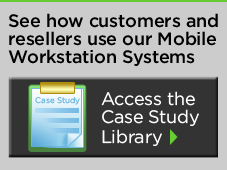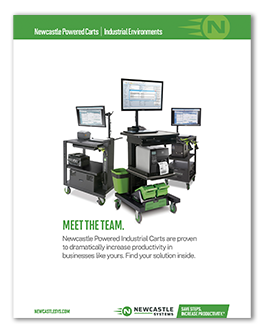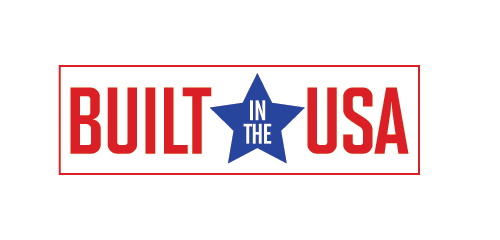This article, an interview with CEO John O'Kelly, was written by Gabriel Perna, digital editor at Chief Executive Group, was first published on ChiefExecutive.net.

Newcastle Systems CEO, John O'Kelly
John O’Kelly did not expect to stay in America, he was preparing to return to Ireland after working in marketing for a few years and gaining experience.
That was 1988, by 1997 O’Kelly had worked his way up the American ladder and was a minority partner in an industrial company. He stayed there for eight years, but after taking some classes at the Harvard Extension School he got a taste of the entrepreneurial spirit. That led him to starting Newcastle Systems out of his basement in Wakefield, Mass.
Newcastle Systems manufacturers mobile powered workstations used for warehouses, allowing processes like shipping and inventory control to be done on the floor. In 13 years, the company has moved from his basement—where he’d have to stop traffic in Wakefield center to receive deliveries— to 3,000 square feet, 8,000 square feet and most recently, in December of 2015, 20,000 square feet in Haverhill, Mass.
O’Kelly talked with Chief Executive about the growth of Newcastle Systems, the challenges the company faces in its space, and more. Below are excerpts from that conversation.
What’s driving all of this growth at Newcastle Systems?
One thing we do every year, we assess our corporate goals, and try to follow up on those, and try to make sure that we make those happen. And one of the goals that we have every year is to develop two new products every year. And so, we spend quite a bit of time on that. We did spend quite a bit of time on making that happen. And I think one of the products that we developed a couple of years ago was a lithium battery-based system, a swappable lithium battery-based power system that is certainly helping us to continue to grow.
So, that’s just one of the items that we have kind of really focused on. We’ve also really focused on just the area that we are in. We’ve been approached by a number of different companies to take on products, and really have resisted the temptation to do that. We want to be the best of what we’re doing. We want to be the best company in the world for mobile power solutions, and that’s really kind of what we’re focused on.
What are some of the big challenges Newcastle Systems is facing in your industry and the industries that you’re selling to and dealing with?
Some of the biggest challenges for us are just awareness. You know, obviously, we are a small company. We don’t have massive brand recognition. And that takes a while to develop that and so forth. And also, the solution that we have is not, it’s not ubiquitous. Everyone does not immediately know about our solution. If an operations director, gives [his team] an edict: “Look, you get ready. We’re going to be increasing [production] by 40% or 50%. Get ready for this in the next year.” What tools or solutions they would they look to use?…Forklift? Conveyer system? Maybe they might hire some additional people or whatever. They wouldn’t necessarily think of mobile power stations. So for us, it’s an education process that we are a lot of times on and trying to… evangelize [our potential customers].
You have a marketing background and you said you used that to help really grow the company and understand what needs there were in the market place that you are serving. When you talk to someone who’s a CEO with a sales background, sometimes they focus too much on the sales side. When you talk to someone who was in operations, they focus too much on operations. As CEO, how do you ensure that you’re looking at your company as it grows from all different angles?
It’s interesting…I used to pack boxes and put carts into boxes and strap them up and put them on pallets and send them out the door. I stopped traffic in Wakefield town center. Over time, we’ve obviously brought on people that are competent and experienced in certain areas. We’ve tried to enact a pretty extensive training program, when people come in, about the culture of the company. We try to make sure the people understand what our expectations are over and above their job performance. And many of the things we look at are our core values.
And our core values are, they are very simple. One is that it starts with the customer. We are customer focused. Another one is positive attitude and integrity. So, these are some of the items that we focus on. You know, and we try to create a culture…where people can feel that they have an opportunity to make a difference. In some larger companies, obviously, it’s not as easy to do that or whatever. And so, we certainly try to, you know, bring in some key people that are pretty experienced that can help us continue to grow.
And, you know, so, yes. My background is in marketing, but I think we’ve got a really [impressive] group. My management team is full of really great people, which is very exciting. We hired a VP of sales and marketing about a-year-and-a-half ago. And this guy comes to us with some really great experience that we did not have before. So to me, my job is really more like a conductor in an orchestra, just trying to make sure that all the different components are in place and that we’ve got a strong background of people who are supporting the operations. My job, as I see it, is just to set the overall plan for short-term and the long-term. The management team and our crew basically puts their fingerprints on that and carry it out.
I want to hire people that I feel can fit into the culture that we have and that buy into where we’re trying to get to.
What advice do you have to your fellow CEOs?
It comes back to not just listening to the customer, but going out of your way to listen to the customer. You can say, “Well, you know, we encourage feedback.” But if you really don’t go out of your way to understand what the pulse of the customer is, then how do you really know what kind of a job you’re doing? You don’t. And for me, that’s always been a validation of, “Are we doing a good job?” I always say that if you listen to the customer, the customer will tell you what direction to go in.
I mean for strategic processes, you may decide, “Well, we don’t want to go with the robots or whatever.” And that’s fine. But if you do listen to the customer, they will tell you what direction you need to go in or what you should go in. For me, that’s critical. Anything else is secondary to that because, if you take care of the customer, everything else falls into place.
[Another piece of advice] is to make sure that you have a clearly identified, your goals for the year, in the short-term and on the medium-term. And just making sure that you are regularly monitoring them. We do this on a monthly and quarterly basis with the management team and make sure that those priorities are being assessed and stuck to.








